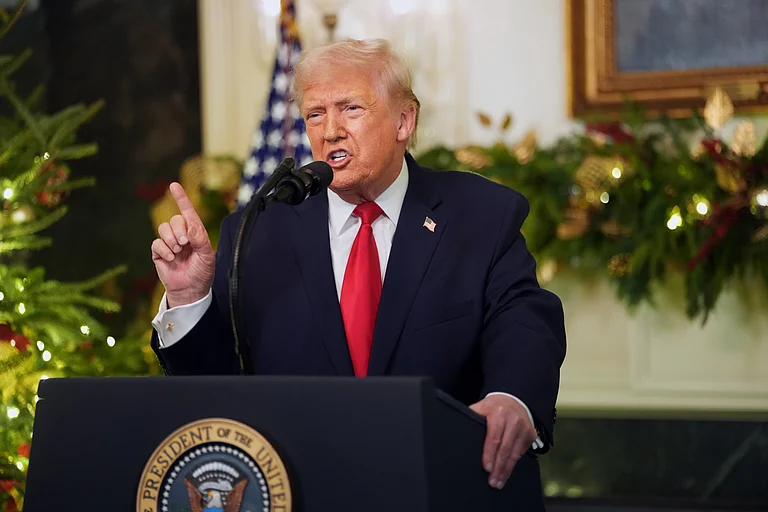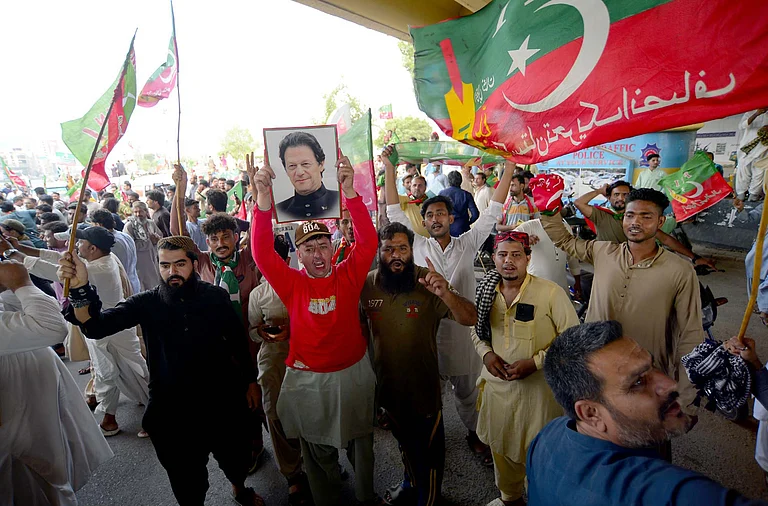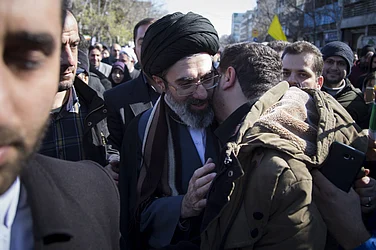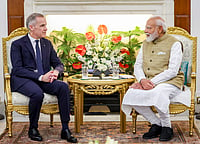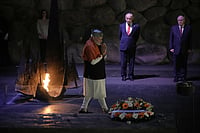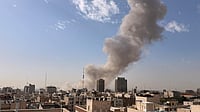It’s been a full circle for Nawaz Sharif, leader of the Pakistan Muslim League. Propped up at the start of his career by military dictator Zia-ul Haq against the growing clout of the then powerful Pakistan People’s Party (PPP), he fell out of favour since he became Prime Minister. He has won election three times, but was ousted by the military without completing a single full five year term. Now he is back from exile and is seen as a favourite of the establishment. Many predict a win for the PML(N) in Thursday’s national elections.
In the past, since being thrown out by the military, Nawaz Sharif’s politics has been virulently anti-establishment. He would rain down fire and brimstone on the army’s interference in politics. Today he finds himself on the other side of the fence. His electioneering is subdued, and he appears uncomfortable, his anti-establishment plank having been taken over by Imran Khan’s Pakistan Tehreek-e-Insaf.
Having made up with the army, he is no longer fighting for democracy. There is no word against the establishment for the injustice done to Imran Khan, who is in prison, cannot contest elections and his symbol of the bat taken away by a court ruling.
Nawaz for an open economy and better relations with India
Nawaz Sharif and his brother Shehbaz are fighting the elections on their past development record. Coming from a business family, during his tenure as PM he concentrated on the economy, worked towards free trade and building of infrastructure. With that in mind, he was keen to improve ties with India.
The 1999 bus diplomacy with India’s Atal Bihari Vajpayee happened during his term as PM. Both the leaders were keen to invest in normalising ties and worked for better political and trade ties. Pervez Musharraf the then army chief had other ideas. Kargil followed. The peace process was torpedoed. But when Musharaff captured political power through another military coup he began his own peace deal with India. During his third time as PM, Sharif and this time Prime Minister Narendra Modi tried afresh for a peace deal. Modi made an unscheduled visit to Lahore in December 2015, but again a terror attack at Pathankot airport followed. Sharif meantime had problems with the military and the Panama Papers was the excuse that Imran Khan and the army were looking for. Sharif was ousted in 2017, and the 2018 elections brought Imran Khan to power. Khan was backed and aided by the military to form a government, as he had not managed to get even a simple majority. The February 14, 2019 Pulwama attack where 40 CRPF jawans were killed put a stop to all peace efforts. Things went from bad to worse, and the removal of Kashmir’s special status and division of the state into two union territories on August 5 2019, was the final nail in the coffin. Relations between India and Pakistan went steadily downhill and Imran Khan recalled his high commissioner from New Delhi. India-Pakistan ties remain in cold freeze. The one silver lining in this has been, the ceasefire along the LoC worked out in February 2021 has held against all odds.
Pakistan has gone through major political upheavals to reach this point, when elections are being held. The economy has tanked, inflation is at its highest, the IMF has helped Pakistan not to go off the rails, but whoever comes to power will have to first deal with the precarious economic situation.
Nawaz Sharif knows that if he wins elections he will have to take some hard unpopular decisions. He said in an election meeting last week that it would not be easy to bring Pakistan’s economy back on track. This is why perhaps he has not made big bang announcements about free electricity or more subsidies. The PML (N) will try to work for more foreign investments into the country, however unless there is a period of political stability and the blow back from the Pakistan Taliban subsides investors will not come in. During Sharif’s last term as PM, Chinese investments were substantial. The China-Pakistan-Economic Corridor was the flagship of President Xi Jinping’s Belt and Road initiative. While the CPEC remains in place, attacks on Chinese engineers and workers by the Baluch separatists have led to slowing down of the projects. China has invested 60 billion dollars for the Gwadar seaport and allied projects and a highway to connect it to China’s Xinjiang province. These major projects have also been financed by loans from China leading to Pakistan’s ballooning debt.
Nawaz Sharif has promised to take the country back to the days when inflation was effectively controlled by his government. Speaking at an election rally in Faisalabad, he said that if he had been allowed to complete his full term in office, instead of being thrown out in 2017, Pakistan’s economy would not have plunged into this sorry state. It is a fact that during Sharif’s time inflation was under control.
If Sharif returns to power in Pakistan, he will push for better ties with India. Nothing will happen before the Indian elections. But later too, India would be wary of doing much with Pakistan, considering that a terror strike always derailed the various attempts at peace making. Many in India, including within the larger Sangh Parivar, are not for engaging with Pakistan. Without the army on board, it is well known that it is useless to engage with the civilian government. Though the previous army commander General Bajwa in the latter part of his term was keen on normalising ties with India, little is known about what the current army chief’s views are on India. For New Delhi too that has big power aspirations, it is important to break the current dead lock with Pakistan. But that decision will be taken after the Indian elections and after much deliberation.
Though the popular wisdom in Pakistan is that the army is backing Nawaz Sharif and he will become PM for the fourth time, nobody not even the powerful military can influence the vote. What the establishment can do is to help their favourite to get the support of independents and smaller parties after the elections.
Punjab had always been the bastion of the PML. However Imran Khan’s party had succeeded in making major inroads into Pakistan’s most important province. The PTI was able to install its own government in the province. Though Imran Khan cannot contest and is behind bars, his support base among the public especially among the young is massive. Nawaz may find it difficult to capture the vote of the younger generation who have absolute contempt for traditional political parties. The Pakistan People’s Party and Bilawal Bhutto Zardari is also trying to claw back and win seats in Punjab, the stronghold of the Sharif family.




